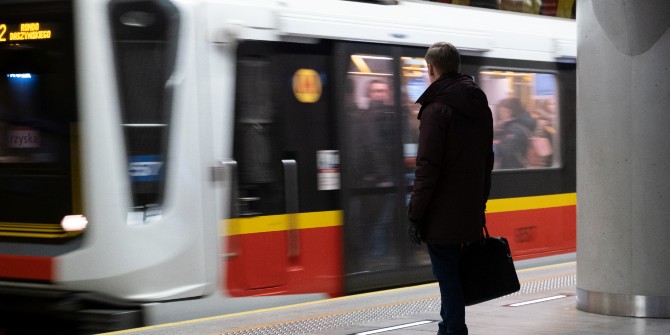In some countries, COVID-19 has prompted property transactions to move online, and in these places the market has picked up as a result. It represents an opportunity for developing economies, says Simeon Djankov (LSE).
Since the beginning of the pandemic, the number of property transactions in Mumbai, India, has fallen by 81 per cent relative to the same period in 2019. The comparable collapse in New York City is 54 per cent. This depression in real estate markets is understandable during the lockdown to stave off the pandemic, and the subsequent uncertainty about the prospect of working from offices and going back to a normal rhythm of daily business and social life.
But there is a silver lining: property transactions have picked up in countries and cities where governments made them easier to execute. In Europe, Belgium, Estonia and France have passed – as part of their COVID crisis-response plans – laws to allow notaries to sign contracts electronically without physically meeting with their clients. In the Middle East, Bahrain and Saudi Arabia made online property transactions mandatory in deed registration offices in large cities to ensure that the real estate market would not collapse further. The speed of this change would have been unthinkable just a few months ago.

Indeed, research suggests that online measures may be sufficient to fuel the market recovery. Land registries need not go fully online all at once. They can start by shifting from paper to digital record keeping and then move to fully online registration. Economies around the world have successfully made the transition — including the UK, where 24 million titles were digitised over the past decade, and Ireland, where about 1.7 million individual titles representing 32,000 paper map sheets were digitised in the same period. A similar process has had an impact on increased access to credit in some urban areas of Latin America.
The COVID crisis is an opportunity for other developing economies to move towards online registration services, slashing costs as a result. For example, it costs on average 7.5 per cent of the property value in Africa to sell property, the most expensive region for real estate transactions, followed by South Asia, at 7 per cent. Delays plummet too after transactions move online, as does the administrative burden on both buyers and sellers.
In many of the world’s informal urban communities, residents are relatively safe against expropriation and eviction, but without straightforward legal sale they lack the means to trade their property for cash, move closer to work, or borrow money through a mortgage. Even with title, the time and money cost of a legal sale may stymie mobility and leave residents rooted in place. That stasis may explain the long commutes between informal communities and formal work in many developing world cities, like Kigali.
Since the last global financial crisis in 2008-2011 many countries have sharply improved their institutions for transferring property. This is largely a result of the pervasive introduction of online technology. These changes are driven by efficiency. As cities grow, it becomes increasingly efficient to invest in better procedures for formalising the transfer of property. Many cities have accommodated that demand.
An optimistic view is that the evident benefits will lead other polities to invest in the fixed costs needed to reform their institutions. In many cases, new technologies – especially electronic record keeping – drive the reduction in time and cost. Digitising property transactions yields, however, yields benefits beyond speed and cost efficiency. The real estate market expands once transactions are available online. Buyers from other regions and countries can obtain property without going through a burdensome administrative process.
This post represents the views of the author and not those of the COVID-19 blog, nor LSE.





